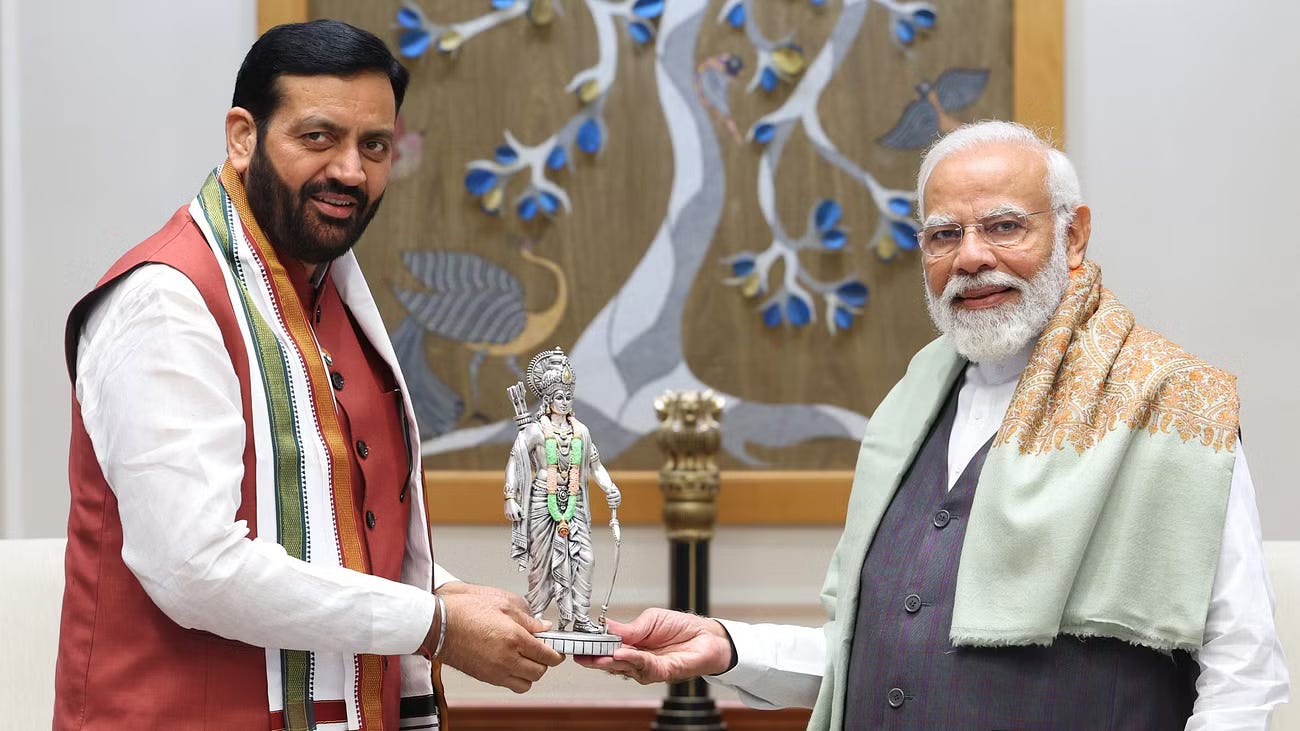Haryana Hikes OBC Reservation to 27% From 15%
The decision, coming before the Haryana Vidhan Sabha elections, is likely to become a major issue in the campaign.
Haryana CM Announces Key Reservation Policies
On Sunday, 23rd June, the Haryana Chief Minister announced significant changes to the reservation policies for Other Backward Classes (OBCs) in the state. The reservation for backward classes in Group-A and Group-B government jobs will be increased from the current 15% to 27%, aligning with the Central Government's policy. Additionally, the annual income limit for identifying the 'creamy layer' among OBCs has been raised from ₹6 lakh to ₹8 lakh. Notably, income from salary and agriculture will not be included in this limit, making it easier for more families to qualify for the benefits of reservation, a decision which could face legal as well as political challenges.
Impact of Himachal Pradesh Scheduled Tribe Reservation
In a related development, the BJP's attempt to grant Scheduled Tribe (ST) status to the Hattee community in Himachal Pradesh did not yield the desired electoral results. The BJP lost the Hattee-dominated seats it had won in 2017, while the Congress managed to retain its positions. This move also faced opposition from the state's SC communities, who feared that the new ST status for the Hattee community would negatively impact their existing reservation benefits. This incident highlights the complexities and unintended consequences that often accompany changes in reservation policies.
Maratha Reservation in Maharashtra
The issue of Maratha reservation in Maharashtra continues to stir tensions between the Maratha and OBC communities. The inclusion of Marathas in the OBC category has led to significant unrest, with OBC activists like Laxman Hake staging protests to prevent the dilution of the OBC quota. The State Government has promised to maintain social harmony and is working towards finding a consensus-based solution to this contentious issue. The challenge lies in balancing the interests of both communities while ensuring fair representation and opportunities for all.
Haryana Reservation in Private Sector
a.) Underlying Law
In November 2020, the Haryana State Legislative Assembly had passed the Haryana State Employment of Local Candidates Act, 2020, which mandated 75% reservation for local candidates (Haryana domiciles) in private sector jobs with a gross monthly salary of less than ₹30,000. This law came into effect on January 15, 2022. However, on November 17, 2023, the Punjab and Haryana High Court quashed the law, declaring it "unconstitutional" and ineffective from the date it came into force. The High Court ruled that the law violated Part III of the Constitution of India, which encompasses fundamental rights, and that the state cannot discriminate against individuals based on solely their domicile status.
b.) Law Declared Unconstitutional by High Court
The High Court's decision was a significant setback for the BJP-JJP coalition government in Haryana, particularly for Deputy CM Dushyant Chautala's JJP, which had made the 75% reservation a key promise in the 2019 state elections. In response, the Haryana government filed a petition in the Supreme Court, challenging the High Court's order. On February 25, 2024, the Supreme Court issued a notice to the Centre and industry bodies regarding Haryana's plea. The state argued that the High Court judgment was not a reasoned order. As of the latest reports, the Supreme Court has not yet delivered its final verdict on the matter, leaving the future of this reservation policy in the private sector uncertain.
Summing Up: The Complexities of Reservation Policies
Although reservation is part of the affirmative action enshrined in the Constitution of India, it has become increasingly politicised and divisive. A case is pending in the Supreme Court regarding whether there can be further preferential classes or hierarchy within SC and ST reservations or if all should be treated equally. In a scenario where government jobs are becoming increasingly difficult to secure, the reservation policy is also facing backlash from the "general category," who are contesting reservations beyond 50%. This multifaceted issue makes it challenging to achieve a national consensus, though it remains highly desirable for the social fabric of the country. In this overall scenario, it remains to be seen whether the new decision of the Haryana Government shall be able to overcome legal and political challenges or if the intended benefits—both administrative and electoral—shall accrue.
If you believe this article would interest someone you know, please feel free to share it anonymously (for us), using any platform that you prefer.



